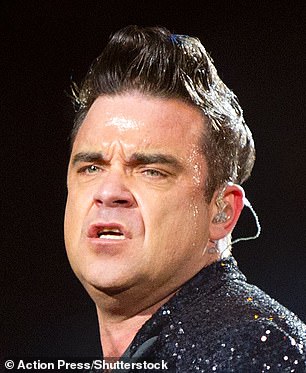In the 1959/60 academic year, the Austrian poet Ingeborg Bachmann gave a lecture on the naming of characters in novels. She observes that the best names within novels enter the general lexicon, become recognisable to a great many people, and have an impressive longevity in both cultural and personal memory. The examples given include Emma Bovary, Don Quixote, Anna Karenina, and Julien Sorel from Stendhal’s The Red and the Black.
Names like these, she says, develop their own “radiant power” rendering them “free and independent”. This means they become almost as real in people’s minds and conversations as names which pertain to real people rather than fictitious characters. Bergmann is focused mostly on German language literature, and doesn’t mention one of the greatest craftsmen of names, Dickens, who blended representative syllables in such a way that his names can function as free-standing indicators of particular human attributes, most obviously with Thomas Gradgrind.
Something Bachmann notices in this lecture from over sixty years ago is surely even more attenuated now, and that is how literature no longer gives us such names. Who are the most important literary characters of the last few decades? It is difficult to imagine a list of widely recognisable names. This need not imply good literature is no longer written — after all, many could name the most important novels — but that our relationship to names and naming has changed.
Nonetheless, it is becoming apparent that some actually existing people have names which can function like fictitious characters in the collective imagination. This is related to the well-worn cliché about politicians being treated as comic book bogeymen or saviours. Yet it goes much further insofar as the most memorable characters of political life now function as imagistic symbols for a vibe or a cluster of vibes, rather than as individuals and would-be administrators seeking to implement a clearly-defined list of policy proposals. The symbolic patterning of contemporary politics means the names born by politicians can now attract a “radiant power” and become “free and independent”, like the great literary names of old — similar in character to the names of fictitious characters.
The most obvious example is Donald Trump. His surname suggests the bold and confident blast of the trumpeter, the final clarion call for the end of the world, a special card which subverts all the usual rules of a game, but also, in English at least, an audible emission of flatulence. Then there’s Nigel Farage, inescapably French enough sounding to give HIGNFY appreciators tedious gags, but also having a certain Norman flavour which commands a respectful tug of the forelock from many an Anglo-Saxon. But the name’s replication of the “g” with two different sounds gets to the heart of English contradictoriness about Europe, our unease-meets-unavoidably-involved-in-history attitude to the continental mainland. A novelist could hardly have done it better.
Then there’s Kamala Harris, who, when she first became known on these shores after the 2020 US election, had many articles about the correct way to pronounce her first name. We were told it must not have the standard lilt or intonation of Kamála or Kamalá, but as something like cámel-la, with a shortened “a”. She herself had complained about people not pronouncing it as she wished. In this way the name functioned exactly like a novelist could have named a politician who would symbolize the abysmal, tragi-comic failure of wokeness, a worldview in which mispronouncing a name constitutes a microaggressive act of racism — providing a name which cannot be uttered without a conscious effort to avoid an unwitting act of racism.
It is difficult to imagine being able to interpret names like, say, Harold Wilson, John F. Kennedy, Clement Atlee, Bill Clinton or John Major in this sort of classically novelistic way — where the very sounds themselves bespeak something essential pertaining to what the person represents. Even the name Keir Starmer, by contrast, would have an interpretive dimension if used in a novel — suggestive of Keir Hardie, and thereby the tragic end to the Labour’s party’s optimistic beginnings. “Starmer” has a slightly jackboot, totalitarian feel, perhaps due to its proximity to Storm (as in trooper) — but for the full-effect the novelist would have to mention his middle name to get that nasal, awkward, panicked feel: Rodney.
I wonder how future students of English Literature will explain our current inability to ascribe effective literary names. Bachmann blamed modernist fiction. Kafka played with the role of naming in such a way that a return to straightforward naming seemed naïve. She calls Thomas Mann “the last great inventor” and “enchanter” of names — giving particular attention to Tonio Kröger and The Magic Mountain’s Hans Castorp. With such names, we read, “everything is precisely measured out beforehand”, “injected into the name”, and “precisely laden with significance”.
A great literary name claims a wholeness and unity of knowledge about a character. Thomas Gradgrind or Professor Moriarty simply are what the names suggest to us, and so they can enter into our collective communication by providing a firm linguistic grasp on something, and thus ceasing to be mere characters and functioning like the memories we bear of the concrete individuals we have known in life.
Names are public property — the bit of someone we can mostly use at will, and without fear of trespass. At the same time, names are not mere placeholders, but are, as the novelist Karl Ove Knausgaard observes, intimately connected with the inner life of the person named — the “secret and particular self” that others don’t see. This is why it is hurtful for a child when his name is altered for the purpose of teasing, or why an adult takes it to heart when someone they know has forgotten their name.
Great literary names combine in a couple of words something pertaining to both the public and private self — therein lies their greatness. The problem today is therefore related to how these two aspects of the self are no longer disambiguated in the way they were when those great novels were written.
Until recently, few had a name which would be encountered in the media, only the famous. For everyone else, names were mediated only by conversation or bureaucracy. Writing on how this changed with the advent of social media, Knausgaard comments that “almost everyone I know has begun to treat their name” as “an advertisement of their own idea of who they are”.
Inevitably this means that fiction cannot function as fiction did before
The great literary names, by contrast, enable others to know the person better than they know themselves. There is no room in such a name for how the person wishes others to perceive who they are. This is just one of many examples of how our now-mediated existence “impedes on the way we see ourselves and seeps imperceptibly into our identities” as we “gradually recalibrate” everything in line to what we see as the “expectation” of an observing crowd. In short, says Knausgaard, “we are at a point where everything is either fiction or seen as fiction”.
Inevitably this means that fiction cannot function as fiction did before. The question is what becomes of the novel when most individual lives are narrativised and fictionalised as they are lived, and this is not yet clear. What is becoming clear in the meantime, however, is how strangely mythic politics will look in this fictitious world which can longer separate real events from their concurrent mediation — a world in which embodied archetypes inhabit collective expectations, where leaders are those who can be known by others better than they know themselves — and where, as Bachmann puts it, someone’s name again becomes “so convincing that we accept it unquestioningly”, “commit it to memory” and “keep company with it” in everyday life.












